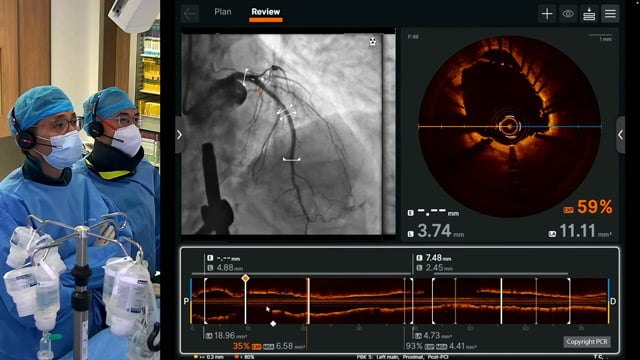3136 results for «34»
3136 results
Precision in mitral TEER
11 Sep 2025 – From PCR Rio Valves 2025
Join this live educational session from Bordeaux University Hospital to gain expert insights into mitral transcatheter edge-to-edge repair (TEER). Explore optimal timing and clinical decision-making for mitral regurgitation treatment, and discover how the PASCAL Precision system enhances procedural precision across diverse mitral anatomies. Witness real-time strategies,...
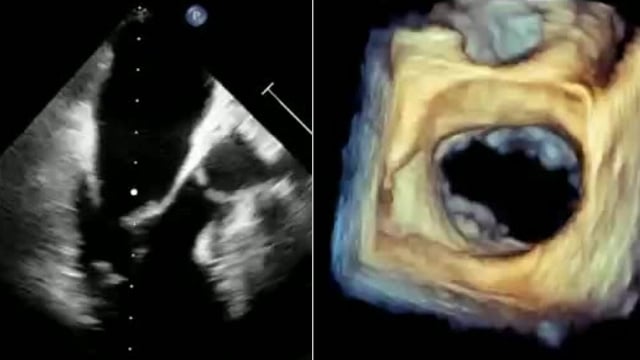
Mitral challenges: from paravalvular leaks to valve-in-valve
12 Sep 2025 – From PCR Rio Valves 2025
Explore complex mitral valve challenges including paravalvular leaks, valve-in-valve implantation, and comprehensive percutaneous cardiac reconstructions. This session highlights innovative percutaneous solutions for surgical no-go zones, haemolytic leaks, and multi-territory device therapies to improve patient outcomes.
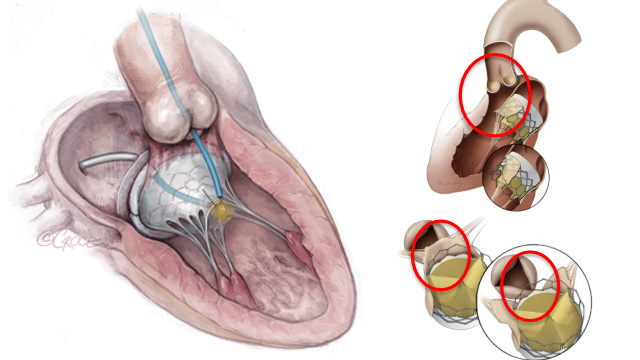
All you need to know about transcatheter tricuspid therapies
11 Sep 2025 – From PCR Rio Valves 2025
Delve into the evolving field of transcatheter tricuspid therapies with this comprehensive session. Understand tricuspid valve anatomy and imaging modalities, discuss optimal timing for intervention in tricuspid regurgitation, and review current and emerging transcatheter treatment options. Case presentations illustrate practical applications and outcomes to support clinical...
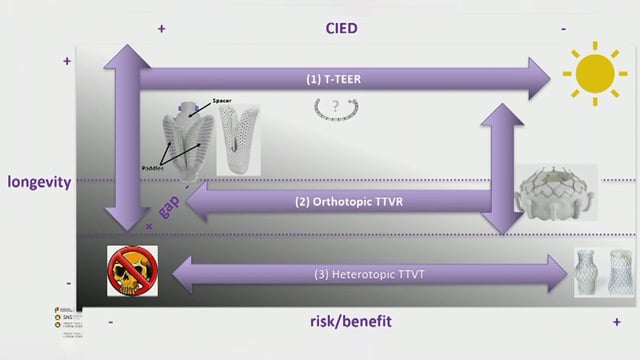
TAVI in complex anatomy: high stakes and tight spaces
12 Sep 2025 – From PCR Rio Valves 2025
Address the high-stakes challenges of TAVI in complex anatomical scenarios. This session discusses high-risk valve-in-valve interventions, management of delayed coronary obstruction, procedures in small annuli, and innovative bailout strategies including carotid TAVI.

Transcatheter tricuspid valve replacement - Where are we in Latin America?
12 Sep 2025 – From PCR Rio Valves 2025
Stay abreast of the latest advances in transcatheter tricuspid valve replacement (TTVR) across Latin America. This session highlights orthotopic implant technologies, patient selection criteria, early clinical outcomes, and discusses future perspectives including training, technology access, and regional clinical impact.
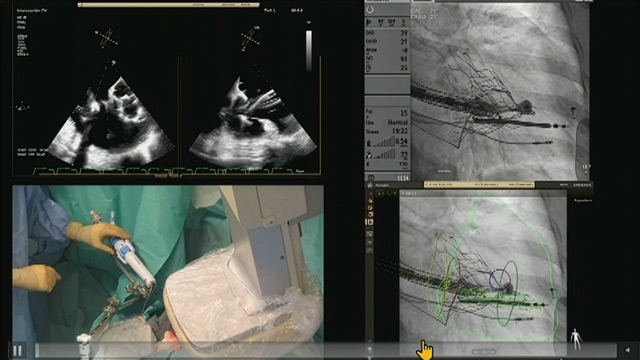
Challenges and complications in coronary interventions
23 May 2025 – From EuroPCR 2025
Discuss real-world challenges and complications in coronary interventions including heavily calcified LAD PCI, cardiac crisis management, and rare intramural hematoma cases. The session emphasizes the importance of IVUS guidance and operator expertise in complex scenarios.
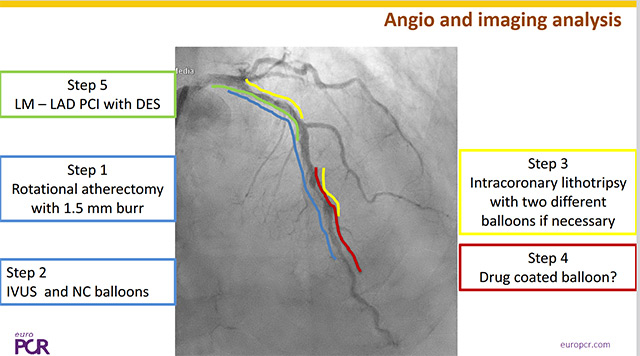
Navigating complexity in high-risk patients with multivessel disease undergoing PCI
23 May 2025 – From EuroPCR 2025
This educational session focuses on navigating the complexities of PCI in high-risk patients with multivessel disease. Learn the roles of imaging and physiology, low-contrast PCI techniques, and optimal strategies for patients with concomitant aortic stenosis, illustrated through detailed case discussions.
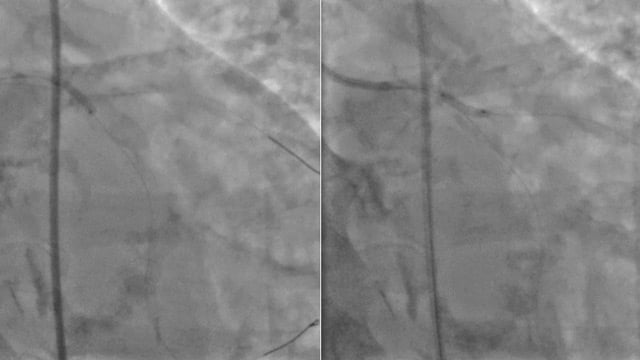
EuroIntervention 20th anniversary and annual editorial meeting – All EuroPCR participants welcome
22 May 2025 – From EuroPCR 2025
Mark the 20th anniversary of EuroIntervention with this special annual editorial meeting open to all EuroPCR participants. Reflect on the journal's achievements, discuss future directions, and engage with leaders in interventional cardiology to shape the evolving landscape of cardiovascular research and practice.
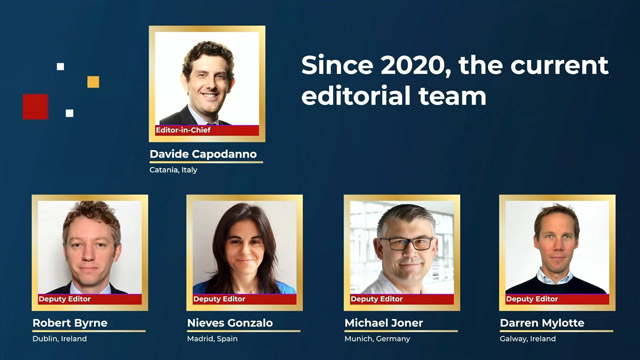
Essential role of imaging in left main PCI
23 May 2025 – From EuroPCR 2025
Discover the essential role of intravascular imaging, particularly IVUS, in guiding left main PCI. Case studies highlight real-time guidance, management of complex bifurcation lesions, and strategies for stent failure, emphasizing imaging's impact on procedural outcomes.
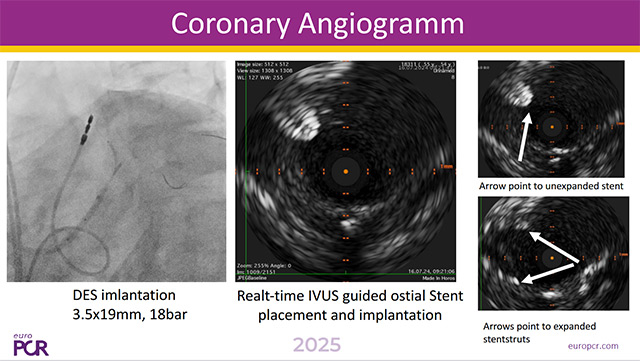
Refractory heart failure: combining oral therapy and device is key
21 May 2025 – From EuroPCR 2025
Address refractory heart failure management through combined oral therapy and device interventions. This session helps identify patients needing treatment escalation, reviews contemporary cardiovascular intervention indications, and emphasizes achieving optimal synergy between pharmacologic and device-based therapies through clinical case discussions.
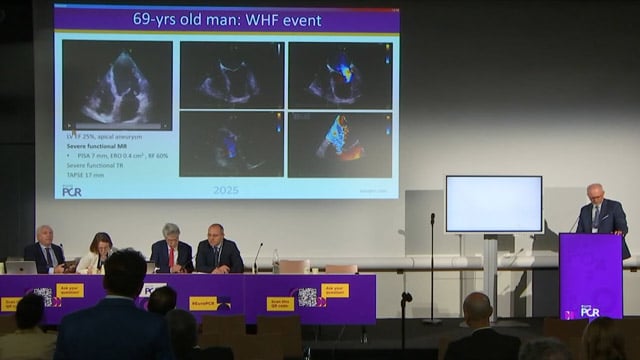
Innovative approaches to refractory heart failure: devices and therapies to the rescue
23 May 2025 – From EuroPCR 2025
This session highlights innovative device-based therapies for refractory heart failure, emphasizing the integration of neuromodulation, decongestive strategies, and the synergy with pharmacological treatments. Case presentations illustrate the evolving landscape of advanced heart failure management.
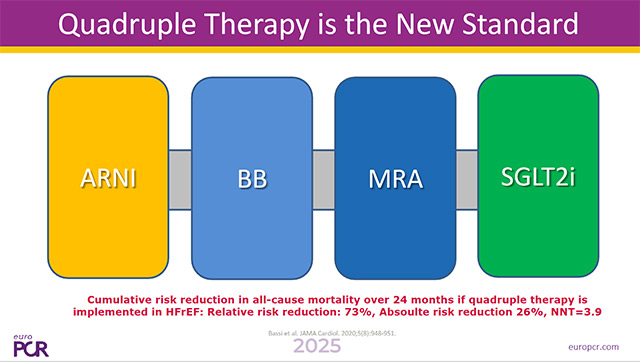
Management of bifurcations with complex anatomy - part 2
23 May 2025 – From EuroPCR 2025
Explore advanced techniques for managing bifurcations with complex anatomy. This session covers novel guidewire penetration methods, cutting balloon fenestration for dissections, rotatripsy for calcified nodules, and precision wiring in challenging left anterior descending artery curves.
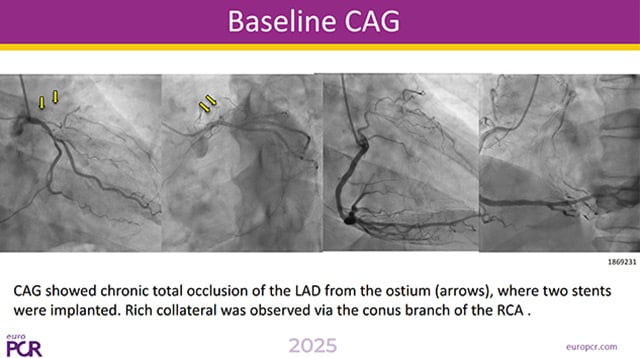
How coronary physiology may help in guiding treatment of NSTEMI
23 May 2025 – From EuroPCR 2025
This session explores the utility of coronary physiology in guiding NSTEMI treatment. Topics include ischemia with non-obstructive arteries, QFR quality assessment, FFR-CT impact, revascularization deferral, and sex differences in FFR-guided strategies for acute myocardial infarction with multivessel disease.
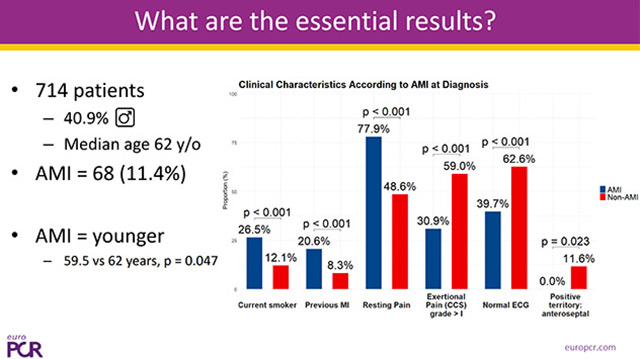
Permanent pacing after TAVI
23 May 2025 – From EuroPCR 2025
Explore predictors and mechanisms leading to permanent pacemaker implantation after TAVI. This session reviews electrophysiological intervals, atrial pacing markers, anatomical risk factors, and outcomes associated with new generation transcatheter heart valves.
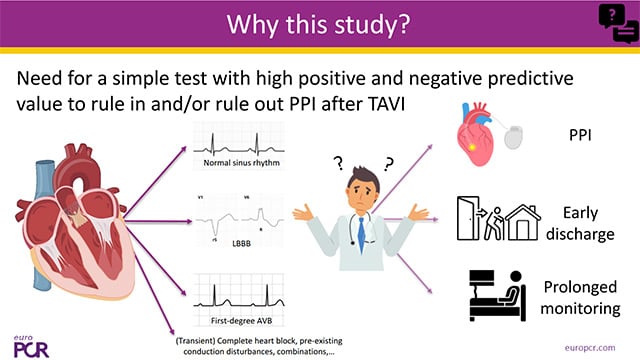
Best companion's case on intravascular lithotripsy
23 May 2025 – From EuroPCR 2025
Join this session focusing on intravascular lithotripsy in challenging cases, emphasizing device and drug synergy, IVUS guidance, and strategies to avoid exacerbating complications. Clinical cases demonstrate management of tough calcified lesions with novel approaches.
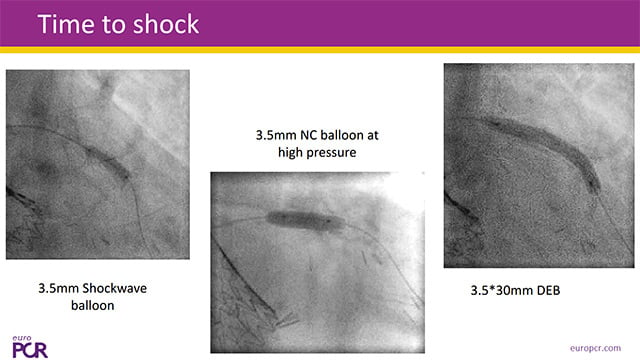
Coronary complications: sharing the unusual ones
23 May 2025 – From EuroPCR 2025
This session shares unusual coronary complications including microcatheter tip entrapment, balloon shaft fracture, coronary balloon rupture salvage, and retained equipment retrieval, highlighting innovative solutions and procedural vigilance.
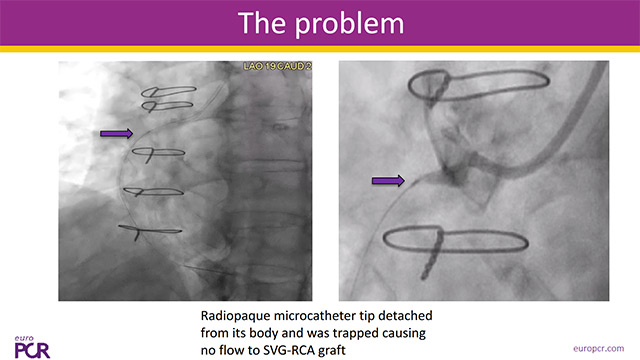
PCI for complex left main disease - LIVE Case
23 May 2025 – From EuroPCR 2025
An 82-year-old male patient with a history of STEMI and diagonal PCI (2004) presented with stable angina (CCS 2). CT imaging revealed 2 severe LAD stenoses (at the ostium and mid part), and a severe bifurcation stenosis at the Cx/OM1 confirmed by angiography. A staged PCI...
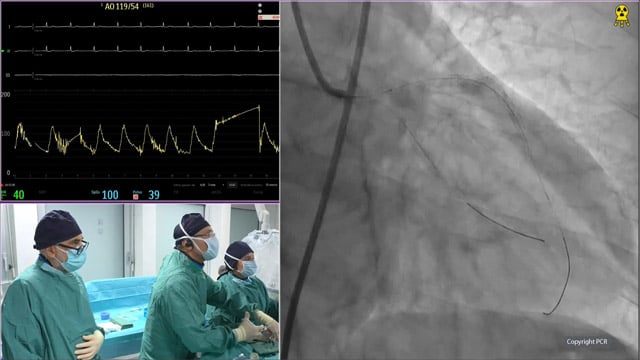
PCR Gulf Valves 2025 Closing Ceremony
30 Sep 2025 – From PCR Gulf Valves 2025
Join the PCR Gulf Valves 2025 Closing Ceremony to reflect on the advancements and highlights of this year’s sessions dedicated to valvular interventions. This event marks the culmination of comprehensive educational activities, fostering collaboration and innovation in valvular heart disease management within the Gulf region.
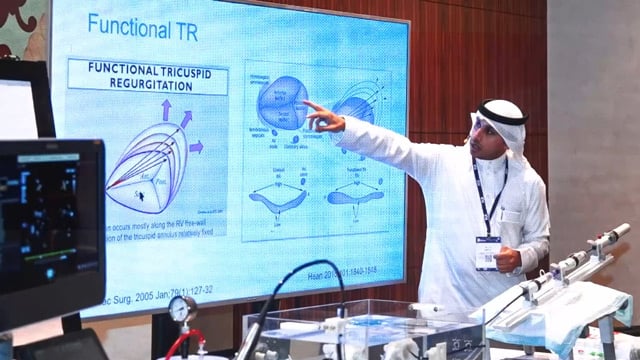
PCR Gulf Valves 2025 Opening Ceremony
29 Sep 2025 – From PCR Gulf Valves 2025
Join us for the PCR Gulf Valves 2025 Opening Ceremony, marking the commencement of an exceptional congress dedicated to advances in structural heart interventions. This session sets the stage for the latest innovations and expert discussions that will shape the future of valve therapies in the...
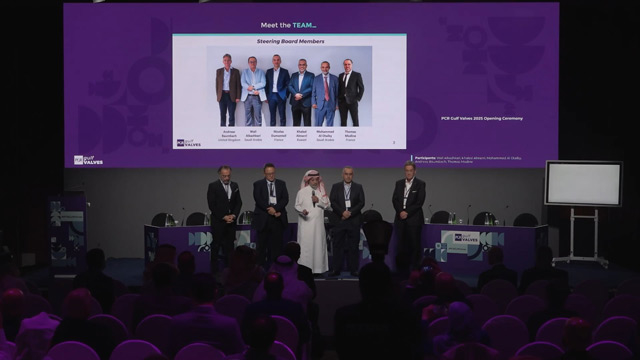
Left main PCI - LIVE Case
10 Oct 2025 – From AICT-AsiaPCR 2025
A 78-year-old male with a history of LAD PCI in 1997 presented with an NSTEMI three months earlier due to diffuse three-vessel calcified disease, including: distal LM stenosis, severe mid and distal disease of a dominant RCA, and LAD in-stent restenosis. LV function was normal. He...
